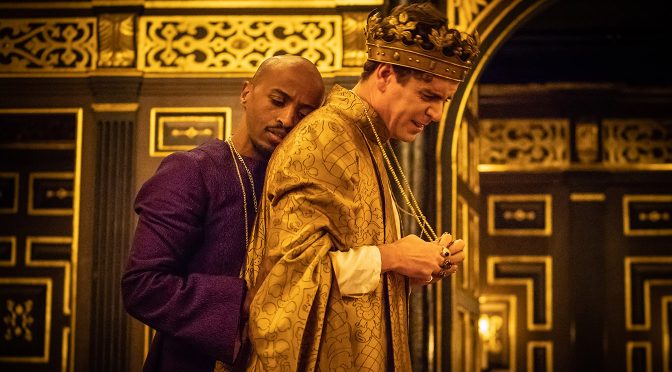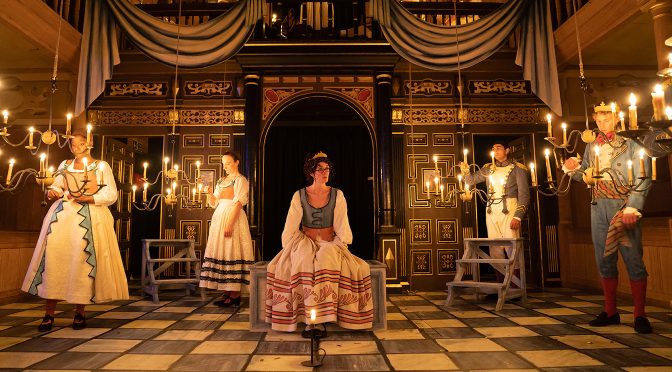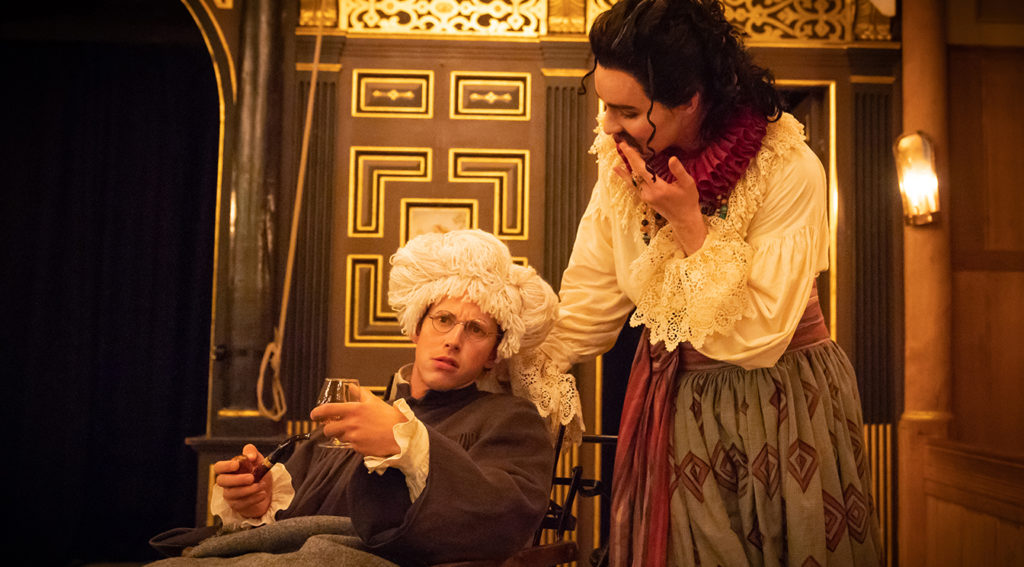While few productions at Shakespeare’s Globe lack contemporary touches, it doesn’t seem too reactionary to suggest that the venue’s glorious indoor site needs them the least. Nobody wants theatrical reconstruction – impossible anyway – but seeing a play in a manner close to that experienced by Christopher Marlowe’s original audience is a special thrill. Congratulations to director Nick Bagnall for this surprisingly traditional affair. Ironically, amidst so many interpretations and so much theory in the theatre, it makes for a refreshing change.
While Bagnall presents the story of England’s troubled king and his love affair with lower-class servants simply – making great use of the space, particularly the candlelight, and its unique intimacy – he isn’t enthralled by the text. As a strict editor, he presents a complex plot efficiently and isn’t held captive by it. Doubling – and trebling – of roles by the hardworking cast is expertly handled (special praise for Annette Badland and Sanchia McCormack), making the action clear throughout.
Plot is to the fore – it’s an interesting story, after all. Emotional impact is ensured by strong performances, primarily from Tom Stuart in the lead role, who gives us a man it’s hard not to sympathise with, despite his flaws. There’s charismatic work from Beru Tessema as Edward’s first love, Gaveston, and a superb performance from Colin Ryan as the replacement in the king’s affections, Spencer. Cleverly, there’s little eroticism in the production – the men’s concern is with status more than sexuality – and, arguably, Bagnall takes us closer to Marlowe’s concerns than contemporary ones.
A focus on the action does deprive us on one point, though. While it’s clear an effort has been made to make the role of Edward’s queen central, Katie West struggles with the part. Isabella’s own obsession with Edward, an essential counterpoint that could make her seem just as unstable as her husband, is missing. Even worse, the depths of Isabella’s relationship with the treacherous Mortimer (Jonathan Livingstone) – that they “kiss while they conspire” – are unexplored. The delivery of these fascinating characters is far too flat.
This is a close study of the play, which has resulted in careful insight. Polly Frame’s Kent has a wonderful final scene: as the shock of the character’s execution dawns, her role comes into focus magically. And there’s terrific work from composer Bill Barclay. Bagnall deals superbly with a text that, while containing wonderful poetry – delivered especially well by Stuart and Tessema – also has a lot of narrative detail. Constant direct appeals to the audience (making us Edward’s judges many times) and a remarkable dynamism in the performances all add to a solid, quality production.
Until 20 April 2019



